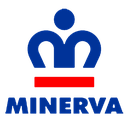Executive Secretary

11nd International Conference of Mechanical Engineering
COMEC 2023
XVIII Materials and Welding Symposium
Abstract
The control of friction and wear in mechanical systems with the addition of carbon nanotubes to lubricants has shown to be promising in tribological applications. In the present study, an investigation was carried out on the tribological performance of a mineral lubricant for diesel engines additivated with different types of carbon nanotubes (COOH and MoS2), and the objective was to evaluate the energetic effect of the nanotubes, in terms of wear rate, fuel consumption and friction coefficient; different types of nanotubes were synthesized and incorporated in different concentrations to a commercial mineral lubricant (15W40) for diesel engines.
Tribological tests were carried out using a Pin-disc tribometer and a stationary diesel engine instrumented for real time data collection, wear rate and fuel consumption were measured, evaluating the performance of the additivated lubricants in comparison with the conventional lubricant without additives.
The results revealed a decrease in wear rate of the surfaces in contact and some additive lubricants showed a decrease in fuel consumption compared to conventional lubricants, suggesting that lubricant additivation can offer significant advantages of particular relevance to the industry in general from the environmental point of view and efficient use of energy.
Experimental evidence supports the idea that nanotechnology can play a crucial role in the development of advanced lubricants with significant tribological improvements with environmental and economic implications.
Resumen
El control de la fricción y el desgaste en sistemas mecánicos con la adición de nanotubos de carbono a los lubricantes ha mostrado ser prometedor en aplicaciones tribológicas. En el presente estudio, se llevó a cabo una investigación sobre el rendimiento tribológico de un lubricante mineral para motores Diesel aditivado con distintos tipos de nanotubos de carbono (COOH y MoS2), el objetivo fue evaluar el efecto energético de los nanotubos, en términos de tasa de desgaste, consumo de combustible y coeficiente de fricción; se sintetizaron diferentes tipos de nanotubos y se incorporaron en diferentes concentraciones a un lubricante mineral comercial (15W40) para motores Diesel.
Las pruebas tribológicas se llevaron a cabo utilizando tribómetro Pin-disco y un motor Diesel estacionario instrumentado para toma de datos en tiempo real, se midieron tasa de desgaste y consumo de combustible, evaluando el rendimiento de los lubricantes aditivados en comparación con el lubricante convencional sin aditivos.
Los resultados revelaron una disminución en tasa de desgaste de las superficies en contacto y algunos lubricantes aditivados mostraron una disminución en el consumo de combustible en comparación con los lubricantes convencionales; lo que sugiere que la aditivación en lubricantes puede ofrecer ventajas significativas de particular relevancia para la industria en general desde el punto de vista ambiental y uso eficiente de la energía.
Con la evidencia experimental lograda se respalda la idea de que la nanotecnología puede desempeñar un papel crucial en el desarrollo de lubricantes avanzados con mejoras tribológicas significativas con implicaciones ambientales y económicas.
About The Speaker

María Isabel Ardila Marín

Discussion



